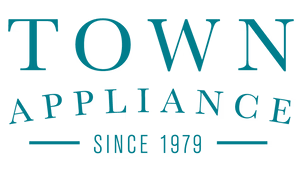None of us can imagine a day without electricity. Whether we are at work, at home, or at school, the use of electricity is needed every day. It's used for heating, cooling, cooking, lighting, transportation, and much more. However, the way the energy is used much affects our environment and life. Therefore, the importance of this is not only in appliances being turned off when not in use, but also in whether they fall into the category of economical or energy-efficient appliances.
World Energy Efficiency Day
Since 1998, every March 5 has been marked as World Energy Efficiency Day. The most important goal of marking this date every year is to raise awareness about the necessary reduction of electricity consumption and its rational use. As a reminder of this important day, Townappliance.com also acknowledges the importance of using energy-efficient appliances that save money and energy.
What Are Energy Efficient Appliances?
Energy-efficient appliances last longer and consume less electricity. Take, for example, classic light bulbs. They produce light, but in the process, they also consume electricity to generate heat, which is a loss of energy. The new energy-saving light bulbs create the same amount of light without losing energy. It's true that such light bulbs cost more, but they not only have a longer lifespan but also consume less electricity, which significantly reduces the bill. The same principle applies to all types of more energy-efficient appliances. The energy-saving refrigerator will consume less electricity than the old model, but will still keep the food cold. A washing machine with energy efficiency class A +++ will also wash clothes like some other lower energy label machine but will consume less electricity.

Energy Labels
Energy labeling was introduced by the EU in the 1990s. It helps consumers make a choice based on the relative energy efficiency, energy consumption, and performance of a product in typical operating conditions. A scale of seven basic energy labels has been defined: A, B, C, D, E, F, and G.
According to this scale, label A is the most efficient, while label G is the least efficient. In addition, three other labels can be used within the most efficient label A. These are A +, A ++, and A +++. They determine the efficiency of the device even more precisely. In 2021, the European Union introduced changes in the classification and labeling of energy efficiency for certain categories of appliances and the above-mentioned is how energy efficiency is being labeled today.
Importance of Energy Efficiency
Numerous studies have shown that home appliances are the largest consumers of electricity in a single household. This especially refers to larger consumers, such as freezers, refrigerators, electric stoves, washing machines and dryers, dishwashers, and water heaters. They consume one-fifth of the total electricity needed by the household annually. But the savings that can be achieved annually only with the help of higher energy label devices are very significant. The fact is that the difference in price between energy label A and energy label A +++ appliances amounts to only $30-$50. Although energy-efficient devices can be slightly more expensive than less efficient ones, their purchase can pay off in a few months by saving electricity. These devices work more efficiently, have no losses, consume less electricity, and total bills are smaller.

Energy Saving and Energy Efficiency
Electricity savings are often misinterpreted, so they are understood as savings that lead to a reduction in quality of life. However, savings refer to everything we can do to not waste energy, which doesn't mean giving up and doesn't have a bad influence on the quality of our lives. This means simple and common habits that can be adopted as behaviors, such as turning off the lights after leaving the room. On the other hand, energy efficiency is a term that refers to the use of appliances that require less energy to operate.
How to Be More Energy Efficient?
There are many ways, and some of them are:
- Replace ordinary energy-saving light bulbs
- If you are able, it's necessary to insulate the house/apartment/studio and close all possible openings made by installing outdoor air conditioning units
- If you are buying new appliances, choose those with the Energy Star label because such devices belong to the group with the lowest electricity consumption
- Try not to waste electricity unnecessarily
If all of the above is applied, not only will electricity consumption be reduced, but it will be used rationally. However, we shouldn't go extreme with anything. It's not energy efficient to throw away all our old appliances and replace them with new, energy-saving devices. Instead, wait for them to wear out, then replace them.

Information That Energy Labels Provide
The energy label contains a number of useful information that will introduce you to the energy efficiency parameters of a particular appliance. The content of energy labels varies from appliance to appliance (not the same for refrigerators, washing machines, air conditioners, and appliances), but some of the most important labels are:
- Energy class of the device - Shown on a scale from A +++ (or from A) to G
- Annual energy consumption - Expressed in kilowatt-hours of electricity per year (kWh / year)
- Noise level - Expressed in decibels (dB)
These features are the essence of everything you need to keep in mind when buying a new device for your home or business space.
Energy Star For the Most Energy Efficient Appliances
The Energy Star program is one of the most well-known standards that promote energy-efficient devices. It was first introduced in 1992 in the United States and was later adopted by the other countries.
Samsung has long been known for its efforts in the field of sustainability and strategic solutions in cooperation with this organization. They have won their "Energy Star Partner of the Year" award six times already. Samsung employees strongly believe that customers are entitled to energy-efficient products that save money and energy, without compromising top performance and convenience. Therefore, they have developed a number of innovative eco-technologies in order to save electricity and preserve ecosystems.
Energy-Efficient Appliance Technologies
We are listing only a few of the innovative technologies that significantly contribute to the rational consumption of electricity and reduced bills.
For example, one of them is QuickDrive technology in Samsung washing machines. QuickDrive reduces energy consumption by 20% and laundry time by as much as 50%, without affecting the quality of cleaning. The Eco Bubble system allows the detergent to penetrate the fabric quickly and easily remove dirt while saving electricity. When it comes to kitchen appliances, Dual Cook Flex technology stands out. It provides absolute flexibility, as the upper and lower zones of the oven can be used independently, with different temperatures and baking times. What makes this system environmentally friendly is the possibility of using only the upper zone, which reduces cooking time by 22% and energy consumption by 20%.
Samsung refrigerators and freezers are recognized as the most energy-saving devices thanks to the digital inverter compressor.

Although the initial investment in energy-efficient appliances may be expensive, the overall benefits to the household, business, industry, and the country, in general, are incomparable in the long run. Usually, the price and possibilities of a device are the main decision-making factor when buying, while the consumption of electricity is often not taken seriously enough. If you are planning to equip your home with new appliances or at least renovate some of them, pay attention to the energy label. Choose new appliances carefully and use them wisely. And if you decide to do this, at Town Appliance we will be happy to provide our assistance and offer you energy efficient appliances from our wide selection.






